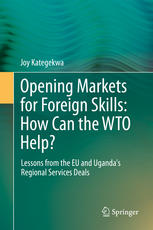

Most ebook files are in PDF format, so you can easily read them using various software such as Foxit Reader or directly on the Google Chrome browser.
Some ebook files are released by publishers in other formats such as .awz, .mobi, .epub, .fb2, etc. You may need to install specific software to read these formats on mobile/PC, such as Calibre.
Please read the tutorial at this link: https://ebookbell.com/faq
We offer FREE conversion to the popular formats you request; however, this may take some time. Therefore, right after payment, please email us, and we will try to provide the service as quickly as possible.
For some exceptional file formats or broken links (if any), please refrain from opening any disputes. Instead, email us first, and we will try to assist within a maximum of 6 hours.
EbookBell Team

4.4
102 reviewsThe Mode 4 commitments of WTO Members are narrow and shallow. Even though trade negotiations for enhanced Mode 4 access started well before the launch of the DDA- prospects for success are thin. These negotiations followed a traditional mercantilist approach- with limited attention to the underlying difficulties countries face in letting people into their borders, either generally, or on the basis of a WTO GATS commitment. This Book argues that this approach alone will not succeed. It proposes a focus not on trading market access concessions only, but on discussions aimed at understanding each other's regulatory approaches. To date, in terms of the literature available, we know very little about how WTO Members are managing their Mode 4 commitments. We know even less about how the WTO could learn from clearly more advanced steps in regional liberalization processes. This Book addresses these issues- through case studies of market access and national treatment commitments, and regulatory approaches in Economic Integration Agreements of a select group of WTO Members.